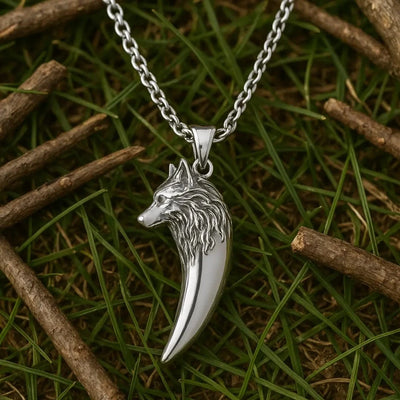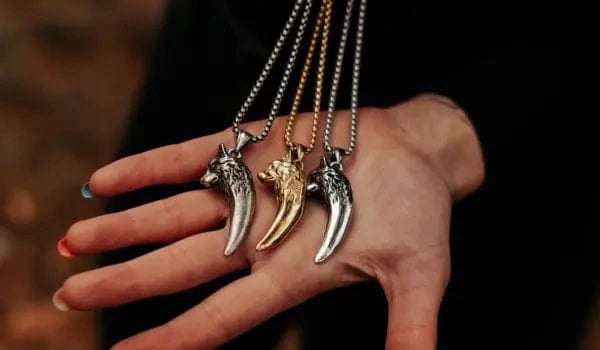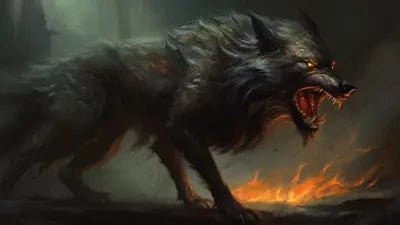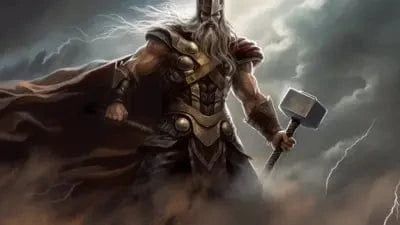Njörd is the Norse god of the wind and the sea. He was the one who accompanied the Vikings in their quests for new lands. He was able to calm storms, extinguish fires, and give fishermen their chances. In fact, compared to what we see in the Viking series, it was him the Vikings prayed to when they went to sea, not Thor.
He was a god greatly revered by humans; his prayers were as important as those of Odin. When humans made sacrifices, they were often intended for Njörd.
He first married his sister, Nerthus, with whom he had two children, the famous sky twins, Freyr and Freya. Later, he was exchanged as a hostage to symbolize the truce between the Aesir and the Vanir. While there, he was chosen by Skadi, they married, but unlike fairy tales, they did not have many children. Indeed, their marriage was a failure.
He lived in Noatun, near the seas to always keep an eye on them. The Vanir had a culture very different from that of the Aesir. They were indeed much older and mastered arts whose secrets only they knew. Njörd was skilled in this area, but it was especially his daughter, Freya, who was an expert in magic. She was the one who taught it to the Aesir after the truce.

34,90€
50,00€
NJORD, THE GOD LOVED BY SAILORS


Besides being the god of the sea, he was by definition the master of fishermen and treasures gained at sea. The Vikings sailing to new lands had great respect for Njörd and often prayed to him for calm and peaceful seas. According to some legends, he was also the god of the hunt, but no reliable source can confirm this.
Njörd is opposed to Aegir, a giant associated with the sea, but who was much feared by the inhabitants of Midgard. He was indeed considered a merciless monster when it came to waves. It is said that when sailors saw the waves approaching, they invoked Njörd to go fight Aegir.
Ran was also a giant feared by sailors; she represented the destructive side of the sea and it is said that she took more than she gave. In other words, she more often crushed boats and killed sailors rather than bringing them safely to port.
NJORD AND HIS FAMILY, EXCHANGE AS A PLEDGE OF ETERNAL PEACE
One day, because of the magic caused by the Vanir, the two families of gods entered into an endless war. It is said that it is unknown whether it lasted a minute or a century. After an undetermined period of war, the two families realized it was useless to fight, unable to find a winner.
The gods decided to establish eternal peace. As a pledge of peace, the two families exchanged some of their own. Njörd was among the hostages sent to the Aesir.
A marriage doomed to fail
Once the hostages were exchanged, a marriage was to take place in Asgard and the giantess Skadi was the lucky chosen one. She had to choose her suitor with a technique that is rather strange nowadays: she could only see his feet.


As you might guess, she chose Njörd, because he had the most beautiful feet. She soon regretted her choice: Njörd was considered ugly by the standards of the time. You might say beauty isn’t everything, and that’s true. Their personalities were also completely opposite. Skadi was the goddess of the mountain while Njörd was the god of the sea. One represented fertility while the other represented severity.
Moreover, shipbuilding prevented Skadi from concentrating and the calm of the forests disturbed Njörd who was used to the noise of storms. The newlyweds then made a pact: to live six months of the year with one and six months with the other. This was obviously a failure since their marriage lasted only a short time.
An exchange not enough
Still in this quest for peace, the hostage exchange was not considered fair by the Vanir since they received only two hostages while they sent three. To take revenge, they decided to cut off the head of Mimir, one of the hostages, to send it to the Aesir. Odin, furious, was ready to declare war again, but Mimir’s spirit guided him instead towards eternal peace.
A second agreement was therefore to be dictated. The Aesir then built temples in Asgard so that the Vanir gods could come and settle in the same city, thus abandoning Vanaheim.
A cultural exchange took place. Njörd and his son taught the Aesir the customs of the Vanir while his daughter taught them the powerful magic she mastered.
Since that day, no war has been declared again between the two families, finally bringing the much-coveted eternal peace.
NJORD IN CURRENT CULTURE
Njord remained for a very long time one of the few gods still worshiped. This was the case in the 18th and 19th centuries in Nordic countries such as Iceland. Indeed, on days of successful fishing, Njörd continued to be thanked.
Several pieces of music also bear his name today. Here is one of them.
However, it is unknown what became of Njörd after Ragnarök; a legend says that he did not participate and returned to live in Vanaheim near his stormy seas.




